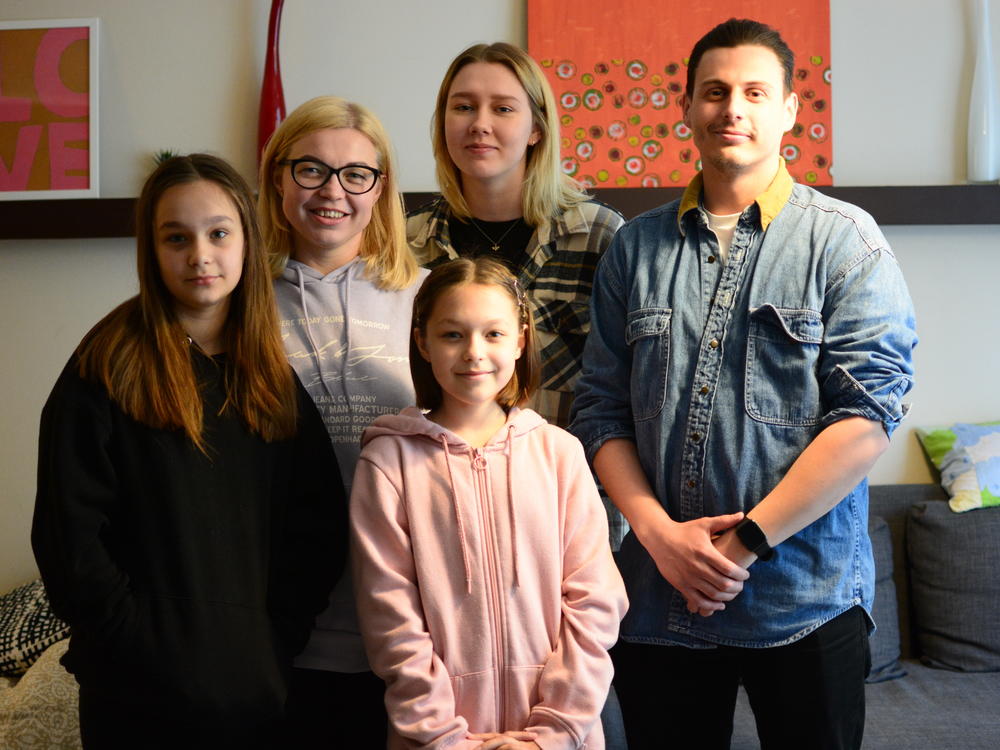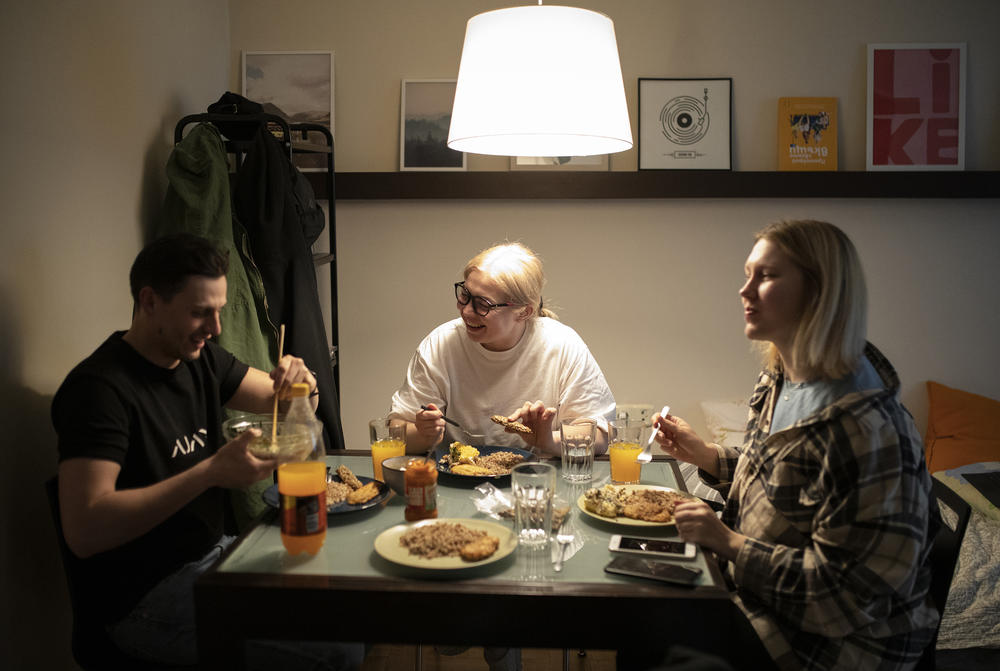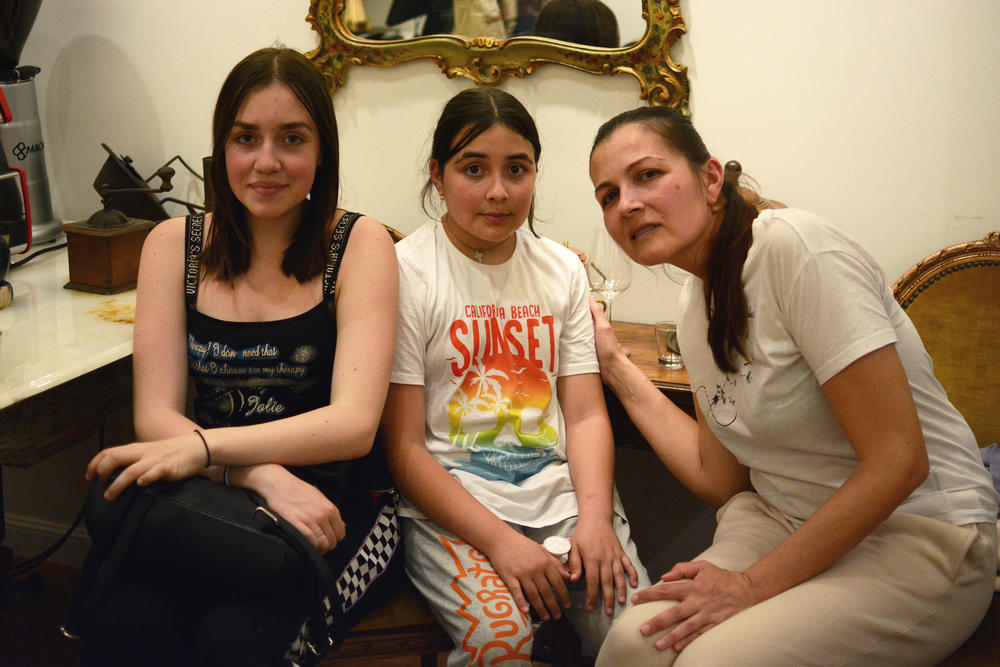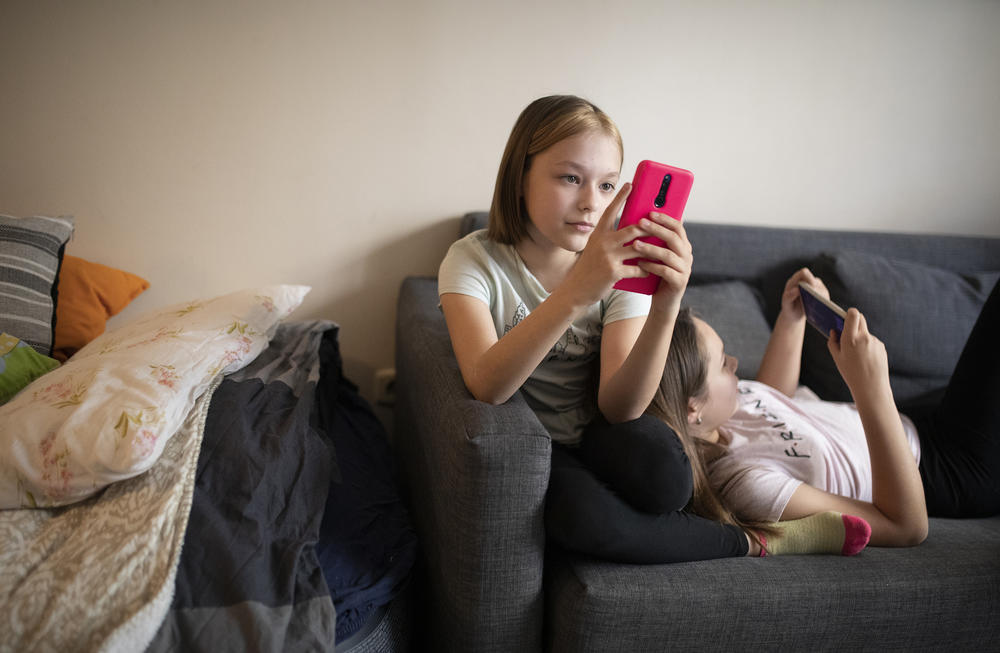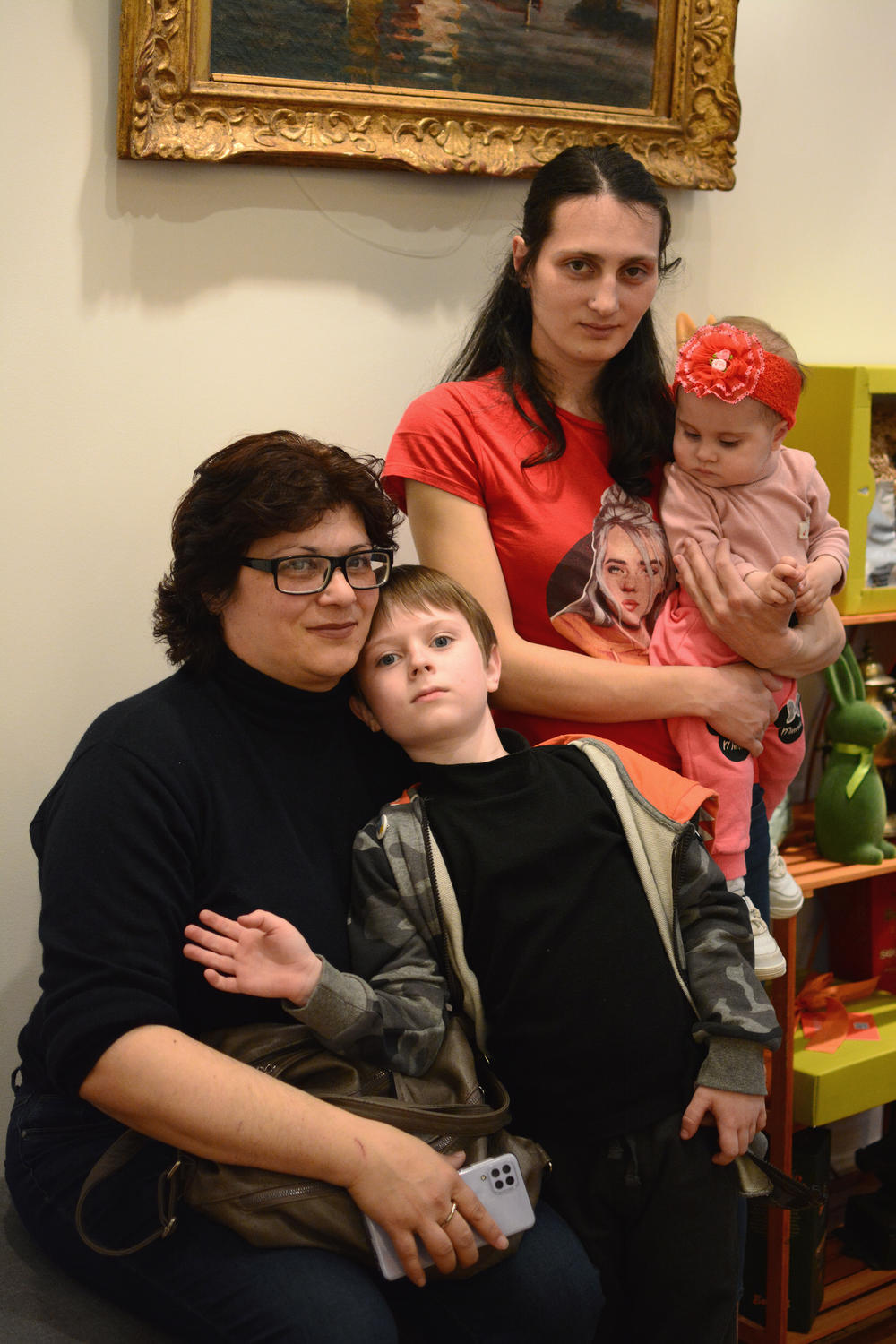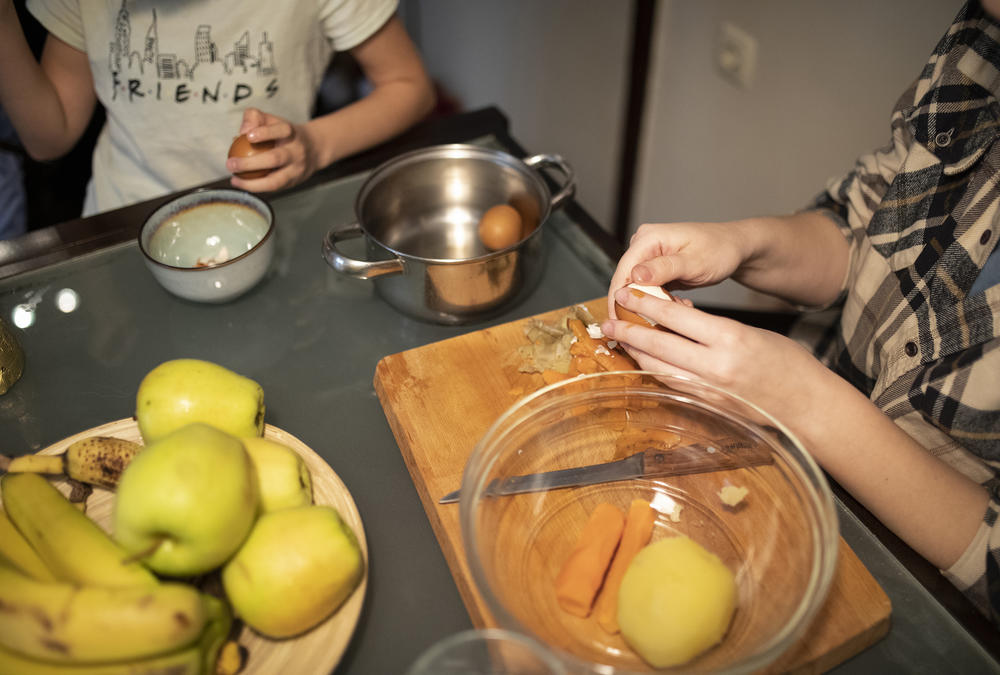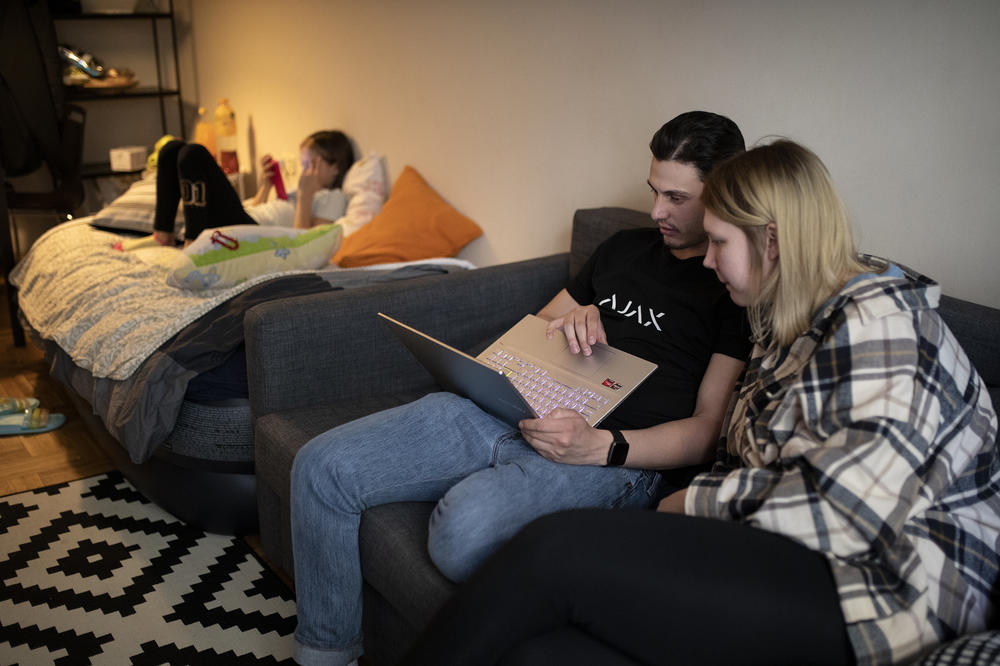Section Branding
Header Content
Orthodox Easter will be very different this year for thousands of Ukrainian refugees
Primary Content
SOFIA, Bulgaria — This weekend would normally be a celebratory one for Ukrainians. But this year, Orthodox Easter Sunday will mark two months since Russia's Feb. 24 invasion of Ukraine.
Millions of Ukrainians have been displaced, seeking refuge in neighboring countries. More than 40,000 of them are in Bulgaria, according to the Bulgarian government.
At a small, noisy café in downtown Sofia, a group of Ukrainian moms and kids sit in chairs or on the floor, drinking coffee and warm milk. This is not where they hoped to find themselves heading into Easter weekend, but they are relieved to be here.
Tetyana Olefir and her daughters, 13-year-old Elizabeth and 10-year-old Alexandra, arrived in Bulgaria's capital just days ago. They are eager to get back to Ukraine. Olefir says her own mother is sick and in need of the family's help. For them, Easter is all about family.
"I wish to go back for Easter because we have our tradition," she says. "We have this Easter bread called Paska and my family all together, my cousins, we stay together and make it... And we go at night, Easter night, we go to church to bless it. And I miss home a lot."
Easter is one of the most important and joyous holidays in Eastern Europe.
"Everybody is painting eggs and drawing on eggs," Olefir says. "And also we make a lot of sweets. On Easter day, we meet with the family and have Easter [dinner]."
This year they are enjoying the company of others displaced from Ukraine and finding some solace in sharing their stories. These moms and kids have left husbands and dads, sons and brothers behind. Ukrainian men between the ages of 18 and 60 have to stay to fight.
Irina Darbakova says she doesn't think Easter will be a celebration this year. She escaped the fighting with her daughter and two grandchildren three weeks ago, after their home in Mariupol was destroyed. But she had to leave her 20-year-old son Juli behind — and has since lost contact with him. Her son-in-law is also in Mariupol.
Darbakova's grandson Denis plays with another young boy on the floor. Their laughter adds levity.
"We try to organize things for them to forget the tragedy that they are living," says Pamela Della Toffola, who helped organize this gathering with the assistance of the charitable arm of her company, Italy-based Alias Group. "All of them have their husbands there ... so it's really tough."
She says she's trying to offer some moments of happiness for the Ukrainians, to try to give them some semblance of normalcy. She hands out little cloth bags with bunnies on the front, filled with Easter treats, to all the kids.
Even if this Easter won't be filled with the usual traditions, some Ukrainians in Bulgaria are finding meaning in safety and the kindness of strangers.
"Everyone helps us ... we are really thankful for those who are helping us, says Josif Feny. He arrived from Kviv earlier this month with his friends Anet Pchelnikova and Natasha Nykolyn, and Natasha's 10-year-old twin girls Oleksandra and Julija.
Feny's mother is Bulgarian, so he has a passport that allowed him to leave Ukraine, despite being 26 and in the age range of males required to stay.
He says he feels torn, but thinks he can be most helpful by making connections for Ukrainians in Bulgaria.
"My feelings are mixed because I know I can go back and be there with other of my friends ... every day I think I left them there," he says.
He and his friends share a one-bedroom apartment in downtown Sofia, where the girls are able to continue with school through online classes. Most of their classmates are also dialing in from countries other than Ukraine, including Poland and Switzerland.
Oleksandra says she'll miss being with her grandparents at Easter.
Feny, Pchelnikova, Nykolyn and the twins will attend their Kyiv church's online service Sunday. Nykolyn says they'll focus on the religious aspects of the holiday — and the fact that they escaped the war alive.
"The meaning of this holiday changed for us," Feny says, "because we ... we survived something in our life, so we can say to kids and other people we can give not traditions but something bigger."
Copyright 2022 NPR. To see more, visit https://www.npr.org.
